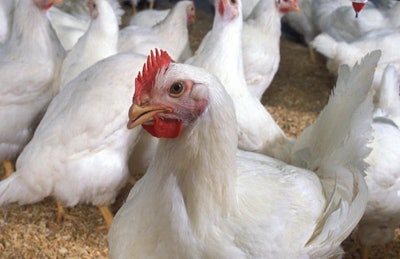
A May 11 announcement by the Agricultural Marketing Services (AMS) said that the United State Department of Agriculture (USDA) and the Trump administration would be putting a six-month hold on animal welfare requirements that were set by the Obama administration. Now the Organic Trade Association (OTA) is suing the USDA demanding that it implement rules requiring organic egg producers to allow more outdoor space per chicken.
OTA feels it has waited long enough for the Trump administration to review the laws and enforce them, so to offer its customers what they feel they desire, the group is taking actions into its own hands.
However, some producers are working with legislators to have their say in what outdoor access means. For chickens to sell as organic, they are supposed to be allowed complete access outdoors all year.
The previously proposed rule would require organic poultry farmers to provide year-round access to an outdoor area that is at least 50 percent soil covered. Roofed areas attached to houses would not be considered outdoor space. Each bird would be required to have at least 2 square feet per bird in both indoor and outdoor settings.
The original OTA rules approved by the Obama administration would have impacted other livestock industries providing products under the USDA’s National Organic Program. Those regulations would have affected not only space allowed per animal, but also housing, transportation and harvest.
Herbruck's hesitation
Greg Herbruck, an executive vice president of Herbruck’s Poultry Ranch Inc., spoke to Brownfield Ag News about the proposal. On an industry-wide scale, Herbruck said estimates provided by the Michigan Agri-Business Association indicated the changes could affect at least 70 percent of organic poultry farmers and lead to a 50 to 85 percent reduction in national flock capacity.
Herbruck is for postponing the laws. His farm currently has 2.2 million birds and is still growing. Providing more space and eliminating the use of roofed areas would impact his business immensely. Herbruck Poultry Ranch and Cal-Maine Foods are two of the largest organic egg producers in the industry. For smaller producers that do follow the OTA standards already, it is extremely frustrating to compete with the bigger guys using their own various methods of “organic”.
A win for OTA
If OTA wins the case, the rule would give producers up to five years to renovate and adapt their operations in order meet what would be the new USDA standard. Some legislators are working to simply revise the rules, however, when the Trump administration originally announced delaying the plans they also suggested throwing them out altogether.
Previously, the OTA made a statement saying, “Under a business-friendly administration, we are confident the (Secretary of Agriculture Sonny Perdue) will see the benefits for producers.” OTA’s lawsuit against the USDA regarding space allowance for chickens to roam will force the government into a decision either way.

















